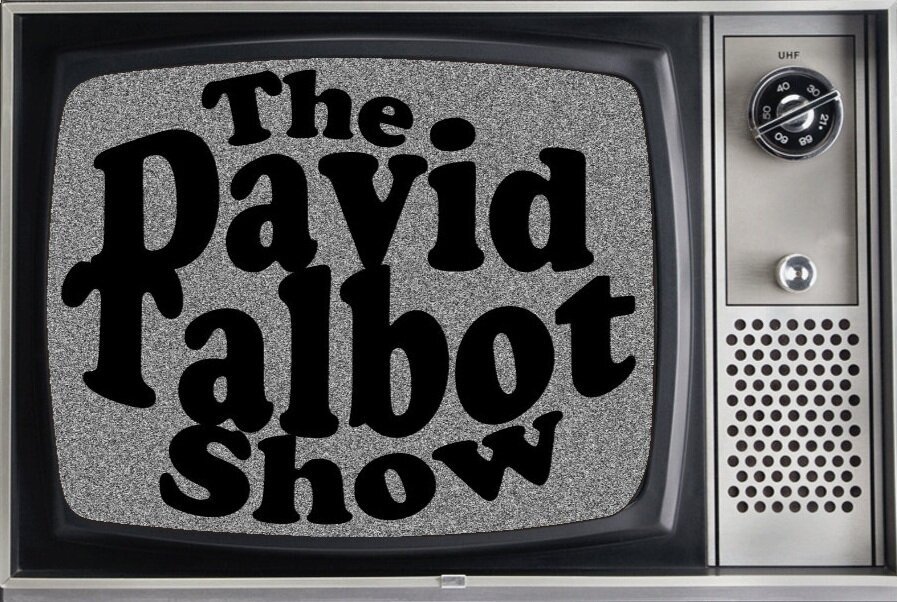Down Among the Palms: David Harris, Lenny Siegel, Stanford Protest… and Me
I admit it. I was an outside agitator. During the early 1970s, I would hitchhike or take a bus from Santa Cruz, California, where I was a college radical, over steep Highway 17 to my girlfriend Pookie’s apartment in Mountain View. I was engaged in militant activism against the Vietnam War in Santa Cruz, so I felt it natural to join protests on the nearby Stanford campus when visiting Pookie. Stanford was, after all, a center of the military-industrial complex, with much of its engineering and scientific research being underwritten by the Pentagon and put to nefarious use in Southeast Asia.
David Harris, the all-American Stanford student body president turned draft resister, had become the face of “The Farm’s” antiwar movement, his celebrity status reinforced by his marriage to folk singer Joan Baez. But Harris was sent off to prison for draft resistance in 1969, and by the early 1970s, the fight against the Vietnam War had become more furious, with new more militant leaders in the place of Harris.
David Harris today
So one night I found myself down among the palms that lined the boulevard into the heart of the Stanford campus. It was a frantic night, marked by raids on buildings where war research was conducted, the sounds of screaming, shattering glass and police sirens. At one point, a group of us pressed ourselves face down against the earth, while riot police floodlights scanned the pitch-black palm grove. I was not familiar with the campus terrain or with the other protesters, but I had seen how brutal the local riot police could be. I remember the thuds of police batons on prone bodies and the beating of my own heart against the ground as I wondered whether I would escape the Tac Squad sweep.
A police riot on the Stanford campus during a Vietnam War protest
This all came back to me as I read Disturbing the War, the new memoir by Lenny Siegel, one of the leaders of the Stanford antiwar movement. Lenny started his academic career at Stanford with the aim of joining the growing tech industry, like countless other students at the campus in the heart of Silicon Valley. But along the way he got radicalized, joined in many Stanford protests, and ran a radical think tank benignly called the Pacific Studies Center. I don’t think I ever told this to Lenny, whom I haven’t seen in decades, but the mentoring and advice I got from him (and from my sociology professor G. William Domhoff, author of Who Rules America?) started me on my path of scrutiny into dark power in the U.S. Lenny would later marry Jan Rivers, one of a pair of beautiful activist sisters who befriended Pookie and whose family home felt like one of the main beehives of Silicon Valley progressivism.
During one Stanford protest, writes Siegel, he threw a police tear gas canister into a building operated by the Stanford Research Institute, a hub of Pentagon R&D. Siegel was arrested and charged with disturbing the peace. “But we knew better. We were disturbing the war.” Years later, when Siegel was serving as vice mayor of Mountain View, the Stanford protest came back to politically haunt him. But he was unapologetic when confronted with his past by a Bay Area TV reporter. Siegel explained that his militant action “was nothing compared to napalming a peasant village in Vietnam.”
Lenny Siegel today
There is something bracing about Siegel’s forthright attitude about law-breaking activism in the face of criminal monstrosity like the Vietnam War. As Siegel points out, too many histories of this fiery period are written by academic bystanders and don’t capture its full human drama. But Siegel gets it.
“I am struck,” he writes, “of the chutzpah of the Movement. Young people, only a fraction of whom were backed by their parents, took on some of the most powerful institutions in world history, and we made a difference.”
What adds to the coolness of Siegel’s story is that he never sold out. His youthful antiwar activism morphed into a lifetime of political struggle --for safe and socially useful labor in Silicon Valley, clean environment, women’s rights and affordable housing. Lenny Siegel is still one of my role models.
You can hear him speak on Friday March 26 at 4 pm Pacific, in a Zoom forum sponsored by the Praxis Peace Institute. For registration information, click here.



